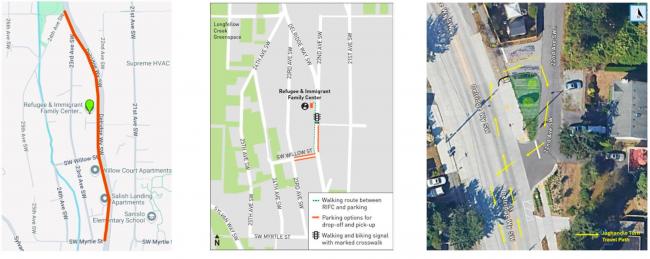Community-Driven solutions announced for Delridge Way SW, resolving longstanding safety concerns
A community set of solutions for safety issues on Delridge Way SW has been developed by Councilmember Rob Saka and Mayor Bruce Harrell.
Wed, 06/18/2025
A collaborative effort between Mayor Bruce Harrell and Seattle City Councilmember Rob Saka has yielded a "community-driven solution" to address persistent roadway safety concerns on Delridge Way SW. The new plan aims to enhance safe access for all road users, particularly focusing on the needs of the Refugee & Immigrant Family Center (RIFC).
RIFC is located at 6535 Delridge Way SW.
The need for these changes stems from a controversy surrounding a hardened median strip that was installed as part of the RapidRide H Line project on Delridge Way SW. This median was originally intended to prevent left turns across a protected bike lane, thereby improving cyclist safety near an H Line bus stop. However, Councilmember Saka has been a vocal critic of the barrier since 2021, arguing that it "negatively impacts access" to the RIFC Bilingual Preschool, where his own children have attended.
Saka previously called the median "highly unsafe" and controversially compared it to the border wall built under the Trump administration, stating that barriers have historically been used to "exclude, isolate, divide, discriminate against, and subjugate" communities. He pushed for city funding, successfully including a proposal to earmark $2 million in the 2025-26 budget specifically for modifications to Delridge Way SW near SW Holly St. Critics of removing the median had voiced concerns that it would increase risks for cyclists and pedestrians. Councilmember Saka, however, has defended the project, rejecting the notion of a "proxy war" between cars and cyclists and insisting that the changes prioritize "inclusive safety improvements for all road users".
Following collaboration with the Mayor’s Office and the Seattle Department of Transportation (SDOT), three quick-build, cost-effective improvements have been announced to resolve the issue at a fraction of the original budget, with an estimated cost of approximately $500,000.
The adopted solutions include:
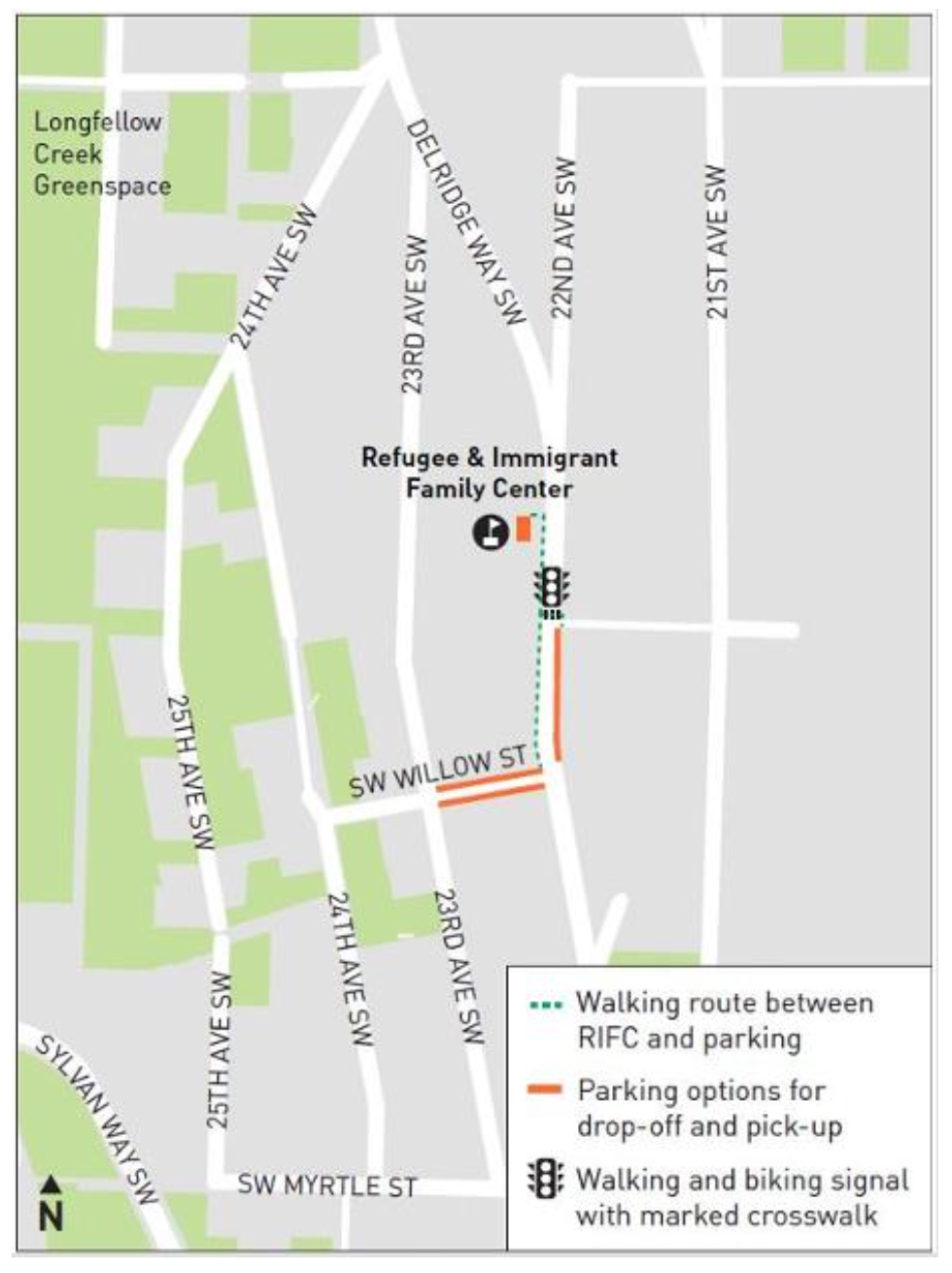
• Designated Pick-Up/Drop-Off Zones: Signage will be installed for designated pick-up and drop-off areas within a short walk of RIFC, including spots on Delridge Way SW and SW Willow Street. These passenger load zones are designed to provide a safe, designated space less than 300 feet from RIFC's entrance and were completed this summer.
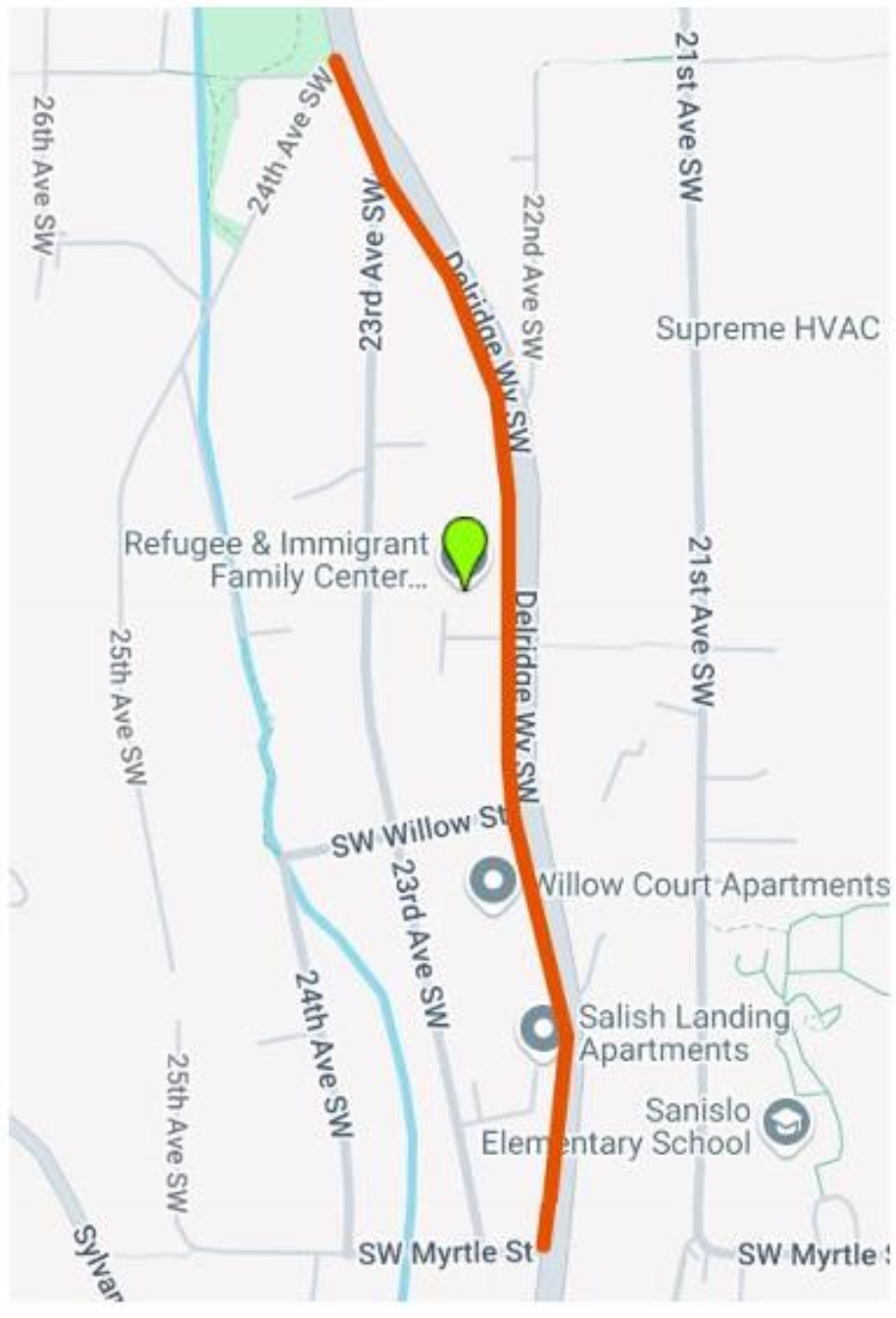
• Non-Peak Parking in Bus Lane: Signage will also be installed to clarify that parking is allowed in the southbound bus lane during non-PM peak hours (except between 3-7 PM) to facilitate RIFC pick-up and drop-off. This measure was also completed this summer.
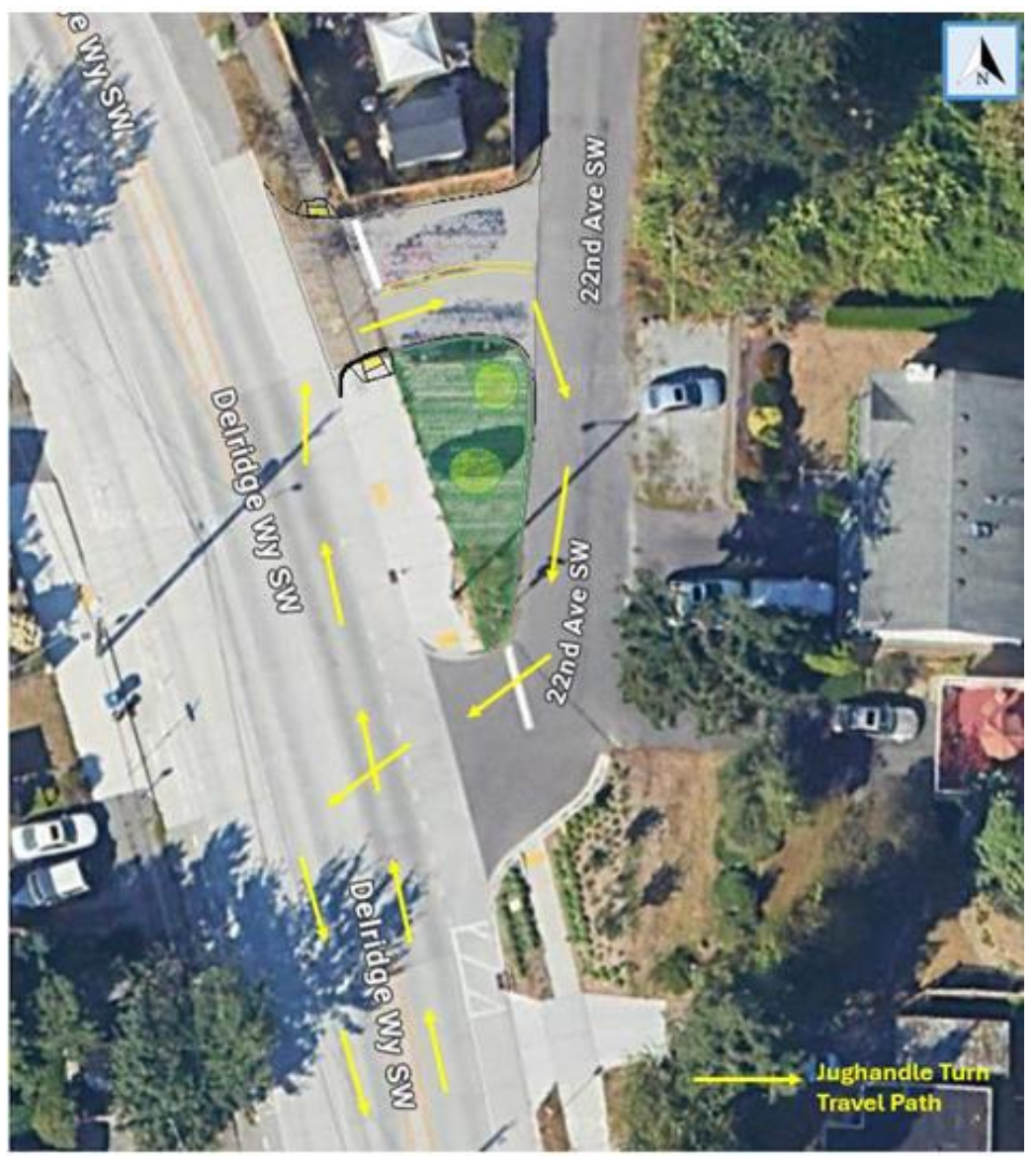
• Southbound Turn-Around (Jug-Handle): A safer proposed turn-around will be implemented at or near 22nd Ave SW, allowing vehicles arriving from the south to head north and then loop back south without obstructing traffic. This "Jug-handle Turn" is expected to be completed by the end of the year.
Both Mayor Harrell and Councilmember Saka expressed satisfaction with the outcome. Councilmember Saka said, "My proposal has always been rooted in equity, ensuring safe access to RIFC while maintaining safety for everyone who relies on Delridge Way. I’m grateful to Mayor Harrell and SDOT for working with my office to find a truly balanced, compromised solution that respects community voices and existing infrastructure".
Mayor Harrell added, "I’m grateful for the creative thinking at SDOT that produced this solution to maintain the existing safety infrastructure and create additional accessibility options for residents".
Community leaders and residents have also lauded the new approach. Luz Casio, Executive Director of RIFC, shared: "These solutions reflect what’s possible when the City listens with intention and acts with care. These improvements will significantly enhance the safety and peace of mind of our families, especially those walking with young children or managing daily drop-offs. We’re thankful to Councilmember Saka for prioritizing equity and to Mayor Harrell for his leadership in supporting our community’s needs".
Karina Rojas, Center Director, SouthWest Early Learning (SWEL), commented: "We’re grateful to see our concerns not only heard but acted upon. These improvements will make a real difference for the families we serve—many of whom walk with young children or rely on drop-off and pick-up. This thoughtful approach reflects the kind of partnership we value in our city leaders".
Finally, Brendan Kolding, a resident of North Delridge, remarked: "I appreciate Councilmember Saka's collaborative leadership on this project. There will be fewer risky U-turns across the double yellow lines on Delridge, which will result in a safer neighborhood for all. The fact that this project will end up costing about a quarter of the original allocation illustrates what local government is capable of when parties are willing to communicate and compromise in the interest of the greater good".
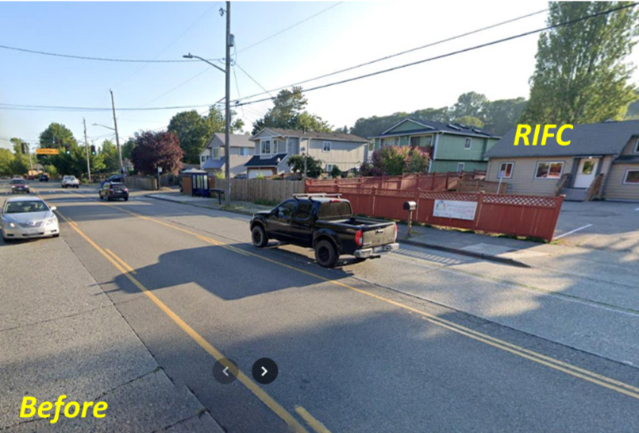
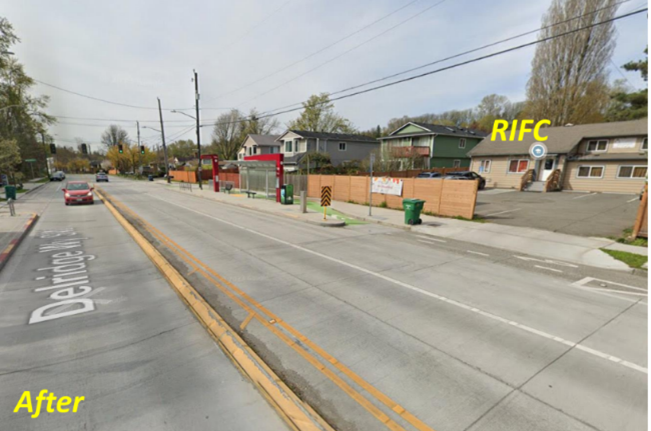
Councilmember Saka went on to explain further in his newsletter to constituents:
"This project addresses safety and long-standing inequities — especially for immigrant and refugee families relying on two vital West Seattle child development centers:
- Refugee and Immigrant Family Center (RIFC)
- Southwest Early Learning (SWEL) Center
Just ¾ mile apart, these centers share staff, logistics, and resources. They’re not just licensed childcare — they’re trusted, bilingual anchors serving hundreds of families.
-
RIFC: 46 children, 14 staff, 1,200+ families supported in the last decade
-
SWEL: ~60 children, 12 staff
Their communities face daily barriers — economic hardship, trauma, and systemic exclusion. Safe access isn’t a luxury; it’s a necessity.
Harmful Impacts of Poor Outreach
In 2020–2021, Seattle Department of Transportation (SDOT) and King County Metro redesigned Delridge’s arterial corridor. But due to language barriers and poor outreach, RIFC and SWEL were not included in the original planning or design process.
The fallout:
-
Blocked access points
-
Increased accidents, crime, vandalism, and safety concerns
-
Unsafe drop-off zones
-
A surprise RapidRide stop directly in front of RIFC
Families and staff were left to navigate new risks daily — all caused by decisions they weren’t part of. "

